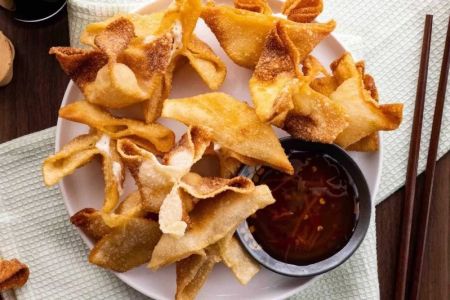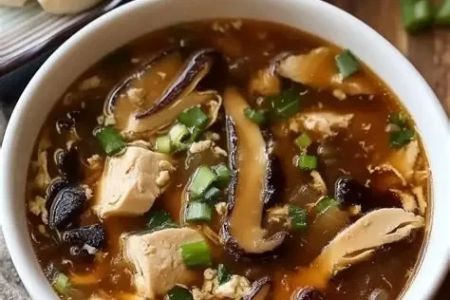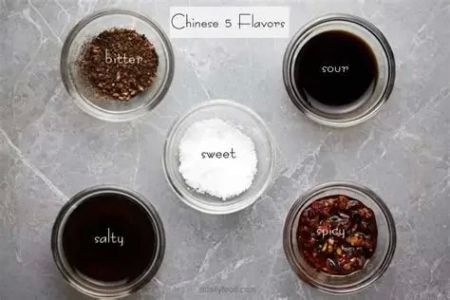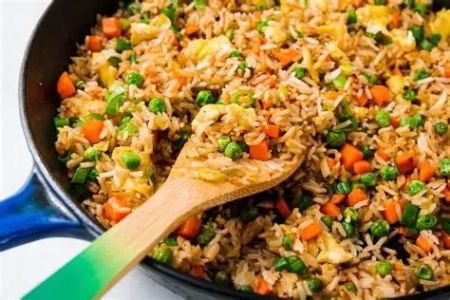The Health Benefits of Ingredients in Chinese Food for Digestion
When I first moved to the United States, I had never fully appreciated how transformative Chinese food could be for my digestive health. Growing up in a Chinese household, meals were more than just food; they were the foundation of wellness. The combination of fresh ingredients, balanced flavors, and healing properties of various herbs and spices always left me feeling energized and refreshed. Over time, I’ve come to realize that many of the ingredients in Chinese cuisine are not only delicious but also offer a myriad of health benefits, particularly for digestion. Let me share some insights into these fantastic foods and their digestive powers!
1. Ginger – The Digestive Powerhouse
One of the most widely used ingredients in Chinese food is ginger, a root with a long history of use in both culinary and medicinal traditions. When it comes to digestion, ginger is a true powerhouse. It has natural anti-inflammatory properties that can soothe the stomach, reduce nausea, and stimulate the digestive system. I remember my grandmother always brewing a pot of ginger tea whenever I complained about feeling bloated or sluggish. She would tell me that ginger could "wake up the stomach," helping to promote better digestion.
But it’s not just an old family remedy. Science supports the claim that ginger can help with issues like indigestion, constipation, and even acid reflux. Whether you enjoy it in stir-fries, soups, or teas, this ingredient is a must-have in your diet if you want to improve your digestive health.
2. Garlic – A Gut Health Superfood
Another essential ingredient in Chinese cuisine is garlic, often used to add depth of flavor to savory dishes. Beyond its delicious taste, garlic has incredible benefits for your digestive system. It is packed with allicin, a compound that has natural antimicrobial properties. Allicin helps to balance the gut microbiome by fighting off harmful bacteria and promoting the growth of good bacteria, which is essential for proper digestion.
When I first learned about the gut microbiome, I realized that garlic was one of the unsung heroes of gut health. It plays a key role in regulating digestion by promoting the flow of gastric juices, which helps break down food more efficiently. So, the next time you enjoy a garlic-infused stir-fry or dip, you’re not just indulging in great flavor—you’re boosting your digestion!
3. Green Tea – A Refreshing Digestive Aid
Green tea is another staple of Chinese culture, often served with meals or enjoyed as a refreshing drink throughout the day. This humble beverage is not just hydrating but also packed with antioxidants, which are beneficial for the digestive system. Studies have shown that the catechins found in green tea can improve the efficiency of the digestive process and reduce symptoms like bloating and indigestion.
What’s even more interesting is that green tea can help regulate blood sugar levels, preventing spikes that can contribute to digestive discomfort. I’ve found that sipping on a cup of green tea after meals helps me feel lighter and more energized. It’s the perfect way to finish off a delicious Chinese meal, and it’s a great way to support overall digestive health.
4. Chinese Herbs – Ancient Remedies for Modern Digestion
Chinese medicine has long embraced the healing power of herbs to promote digestive health. Ingredients like licorice root, chrysanthemum, and fennel seeds are commonly used in Chinese cuisine and traditional remedies to soothe digestive discomforts.
Licorice root, for example, is known to reduce inflammation in the stomach and intestines, easing symptoms of heartburn and indigestion. Chrysanthemum tea, often served at Chinese restaurants, is not only refreshing but can help reduce bloating and improve liver function, which is vital for proper digestion. Fennel seeds are commonly used in Chinese soups and broths and are known for their ability to reduce gas and bloating, making them an excellent choice for those with sensitive stomachs.
5. Tofu – A Gentle Protein for Digestive Health
If you’ve ever had a traditional Chinese dish like mapo tofu or tofu stir-fry, you know how delicious this soft, spongy ingredient can be. But tofu isn’t just tasty; it’s also a gentle source of protein that’s easy on the stomach. Unlike red meat or dairy, which can sometimes be hard to digest, tofu is light, low in fat, and packed with plant-based proteins.
For those who experience digestive issues such as bloating or discomfort after eating meat, tofu is a wonderful alternative. Its mild flavor and soft texture make it perfect for various dishes, and it’s a great source of fiber, which aids in digestion and helps keep things moving in the digestive tract. Tofu is also rich in magnesium, which can help relax the muscles of the digestive tract, allowing for smoother digestion.
6. The Role of Chinese Soups in Digestion
In Chinese culture, soups are often consumed as part of daily meals, and they are believed to have numerous health benefits, including for digestion. Chinese soups typically include ingredients like ginger, garlic, Chinese herbs, and various meats or vegetables. The slow cooking process of these soups helps extract the full nutritional value from the ingredients, making them easy to digest and rich in beneficial compounds.
One of my favorite memories is sharing a big bowl of hot, nourishing soup with my family after a long day. Whether it’s a simple egg drop soup or a complex herbal chicken broth, these soups work wonders for soothing the stomach and promoting healthy digestion. They are also hydrating, which is crucial for maintaining a healthy digestive system.
7. Fermented Foods – Boosting Gut Health with Chinese Probiotics
Fermented foods are a key component of Chinese cuisine, especially in the form of pickled vegetables, fermented tofu, and kimchi-like dishes. These foods are teeming with beneficial probiotics, which are crucial for maintaining a balanced gut microbiome. When you incorporate fermented foods into your meals, you’re essentially introducing live bacteria into your gut that help break down food and improve digestion.
Over the years, I’ve discovered the power of these fermented foods and how they can promote a healthy digestive system. The probiotics help to improve gut flora balance, which can alleviate symptoms of bloating, indigestion, and constipation. Chinese fermented foods like pickled mustard greens or fermented black beans are not only tasty but are a wonderful addition to any diet that supports digestive health.
8. The Balanced Approach to Digestion in Chinese Cuisine
One of the most beautiful aspects of Chinese food is the philosophy of balance. The concept of yin and yang plays a significant role in the way food is prepared and consumed. This balance is not only about the flavors of sweet, salty, sour, and bitter but also about the effects of different foods on the body. Many Chinese dishes are created with digestion in mind, using ingredients that complement each other to enhance the body’s natural digestive processes.
For example, a typical Chinese meal is often designed to include a mix of vegetables, protein, and carbohydrates, each with unique properties that support digestion. Warm dishes are preferred over cold, as they are thought to stimulate the digestive fire, while lighter, more digestible foods are used to balance heavier ingredients. This holistic approach ensures that meals not only taste good but also nourish and support the digestive system.
As someone who grew up with these practices, I can attest to how effective this balance has been in maintaining digestive health. The variety of ingredients and flavors used in Chinese cooking make it a wonderfully nutritious and digestive-friendly option for those seeking to improve their gut health.







